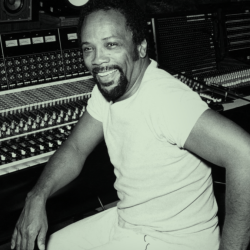From Benjamin Franklin to Winston Churchill, there have been many iterations of the phrase, “By failing to plan, you are preparing to fail”. As such, it’s natural in any industry and sector to look for the perfect framework that will create the perfect plan.
In the world of marketing, the 7Ps — product, price, promotion, place, people, process, and physical evidence — are still considered an integral part of any marketing strategy. Despite being created over 60 years ago, they are still seen as a guideline for marketing to perfect performance.
But how many of us can say we plan everything perfectly?
There are so many variables in life and business. Even if we plan everything to the letter, there’s always the chance of unexpected happenings and circumstances beyond our control. And we’ve certainly experienced this over the past two years!
The only real truth is that every plan is vulnerable to change. And it is impossible to plan for every eventuality – even if we could, would we really want to? Life wouldn’t be much fun as a perennial risk assessor and knowing what’s around every corner would be a curse rather than a blessing.
Rather than following the 7Ps to the rule of thumb, maybe it’s time to consider the 6Ps. That it is entirely Possible that Perfect Planning Prevents Proper Progress.
The unexpected element of jumping into something feet first doesn’t have to be negative if we reframe it as such. Sometimes, it’s good to embrace the spontaneous. After all, don’t we always remember impromptu get togethers and those unplanned afternoon brainstorms with the team more fondly?
That’s not to say plans are useless or not to plan at all. Clearly, some goals require it. But we do need to change our mindset toward it. First, we must ask if it’s necessary and then interrogate that deviating from it is equal to failure.
Consider this; a plan is very much a spectrum. It can be written down in great amounts of detail or simply stored in our heads. Moreover, a plan can be a ‘guide’ — something to identify with if we veer off track. But what’s essential is knowing it’s OK to veer off the path. You haven’t failed if you missed out on a particular achievement or milestone, for example.
In fact, there are well-documented examples of digital businesses that build software to scratch their own itch, only to find that it becomes the core product. That certainly wasn’t “part of the plan”, but so-called “happy accidents” can occur when we’re least expecting them.
There are lots to be found in life’s side quests or from simply being more open to going with the flow
Setbacks will happen, but so too will successes. And ones that can surprise, delight and excite. We all need to find a spark of inspiration for our sanity. As Maslow identified, self-actualisation sits at the top of his hierarchy of needs.
It’s the challenges — or successes — in life that allows us to ask whether we return to the plan, carry on regardless, or ditch it and start again. And to confirm, in the unpredictability of life none of these is the wrong answer. The entire path need not be clear.
Whether you have a plan or not, recognise that both have their benefits and flaws. Journeys without a plan are adventures. Journeys with a plan have a clear focus; they’re less adventurous but increase your likelihood of getting from A to B smoothly. Both bring fun and achievement and can suit different types of goals and personalities. Really, we need a balance between the two to make us feel alive and safe in equal measure.
The best plans account for change and foresee the potential obstacles that lie ahead. But don’t underestimate the power of uncertainty or let this cloud your flexibility. It’s the latter that ensures we can still think on our feet when we need to, and who knows what that can reveal.
Featured image: Adam Nir / Unsplash


































